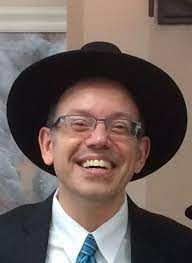
by the Balsam
Family
It is
not often that the circumstances surrounding the end of a person’s life
encapsulate the very way he lived. The morning of the day R’ Daniel Balsam, a”h, passed away, family members were
gathered, singing one of the songs that was most meaningful to him. It is a
song that poetically represents all of the Rambam’s Thirteen Principles of
Faith: the Yigdal prayer. Daniel
Balsam lived his life through these tenets and described them as “the
foundation for keeping the 613 mitzvos.”
When
we think of the most moving and philosophical parts of davening, Yigdal rarely comes to mind. Many don’t
realize
the importance of this tefilah and its connection to the Yud Gimmel Ikarei Emunah. These
principles were enumerated by the Rambam as the basic pillars of Jewish belief.
Daniel
was learned in all elements of Torah scholarship, including Tanach, Gemara, halacha, and machshava.
He studied under and maintained a relationship with many illustrious Rabbanim,
including Rav Nachum Sauer, Rav Michel Shurkin, and Rav Moshe Meiselman. Daniel delivered weekly shiurim
on topics ranging from the Ramban on Chumash to the Zera Shimshon on parsha and Yomim Tovim. However, among
all these pursuits, one area of learning was particularly important to him: the
Yud Gimmel Ikarim. Daniel felt strongly
and passionately that every Jew should possess a clear and active understanding
of these fundamental principles of emunah.
Daniel’s
desire to share these principles with others was apparent many years ago when
he decided to teach them to his grandmother. Grandma Caroline Balsam was
American-born, and though she had no formal Jewish education, she possessed
strong emunah and Jewish identity. As
she was in her nineties, Daniel decided that it was important that she gain a
deeper understanding of the fundamental principles of her Jewish faith. He
taught her for many hours over the phone as she took notes in a small notebook.
With great pride, she told other family members that “Daniel is teaching me the
thirteen principles of faith.” In addition to enjoying the quality time with
his grandmother, Daniel viewed it as a holy mission, as he believed that her
deepened understanding and belief would enable her to go straight to the Kissei Hakavod.
More
recently, once he was already diagnosed with ALS and was physically limited,
Daniel heard of a newly published English sefer, Kisvei Harambam (ArtScroll), which contains an in-depth analysis of
the Yud Gimmel Ikarim. He purchased
it excitedly and was determined to learn it thoroughly.
By having someone turn the pages for him, he learned the sefer more than once. At the shiva,
Rav Yehuda Kielson, the author, reported that Daniel spoke with him “five or
six times” to discuss various aspects of the sefer. Because he felt it was important to share this sefer with others, Daniel made a siyum upon completing it and sent the
audio to his shiurim email
subscription list. In the last shiur
that he sent to his subscribers, he spoke about how important he thought it was
for everyone to purchase and learn the new ArtScroll sefer that elucidates the Kisvei
Harambam. Daniel stressed that it is not enough to passively believe and
understand the Yud Gimmel Ikarim; it
is important to engage with them and be actively and consciously aware of them.
Daniel
also spoke enthusiastically about the prayer of Yigdal, an abbreviated poetic form of these thirteen principles, as
a way of bringing them into our daily routine and consciousness. Yigdal is simple in its language yet
complex in its meaning and depth. In less than a minute, it encapsulates our
belief in the following: G-d’s timelessness, singularity, incorporeality, and
dominion over the universe; the existence of prophecy and the uniqueness of
Moshe’s prophecy; that G-d gave the Torah to the Jewish people and will never
change it; the resurrection of the dead and the ultimate coming of Moshiach;
that we worship and pray to G-d exclusively; and
that G-d knows our
thoughts and exercises reward and punishment.
Daniel
requested from his family that if he were ever to lose consciousness, Yigdal would be one of the prayers they
should sing for him, and it would be as if he were saying it himself. The night
before he passed away, while he was in and out of consciousness, family members
gathered and sang Yigdal, which he greatly enjoyed. On the morning of his passing, we were able to
sing it for him one final time.
To
maintain Daniel’s legacy, our family has started an initiative to share the
power and meaning of Yigdal. It would
be a true and fitting zechus (merit)
for the neshama of this incredible
person if people would accept upon themselves to say Yigdal daily. ???? ????? ??????
??
L’ilui nishmas R’ Daniel
Yitzchak ben Harav Yosef – In Memory of R’ Daniel Balsam, a”h.






